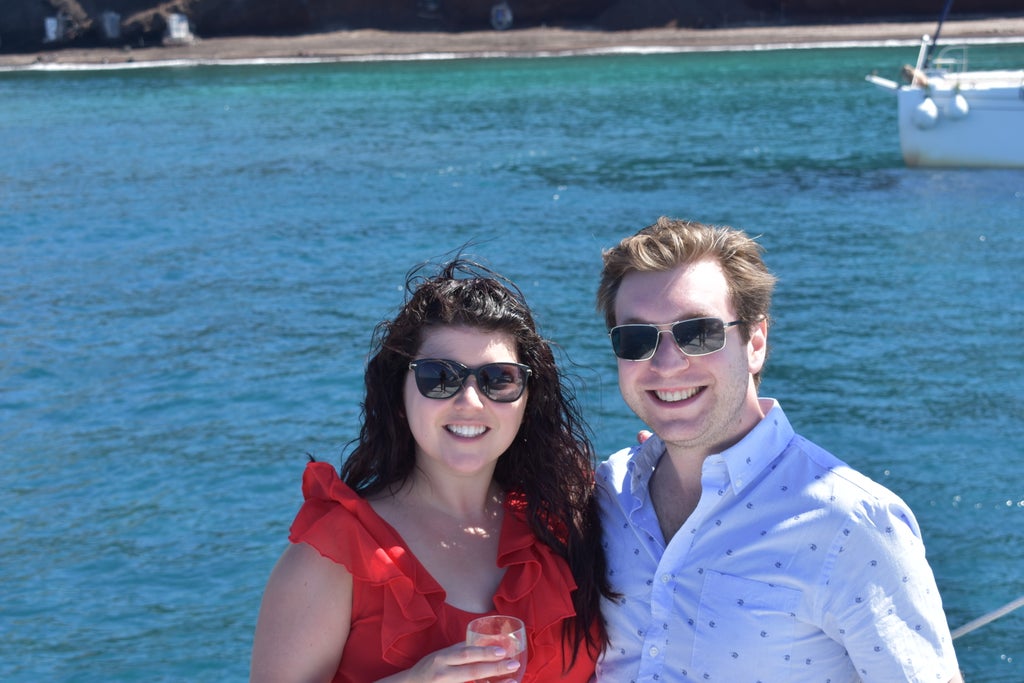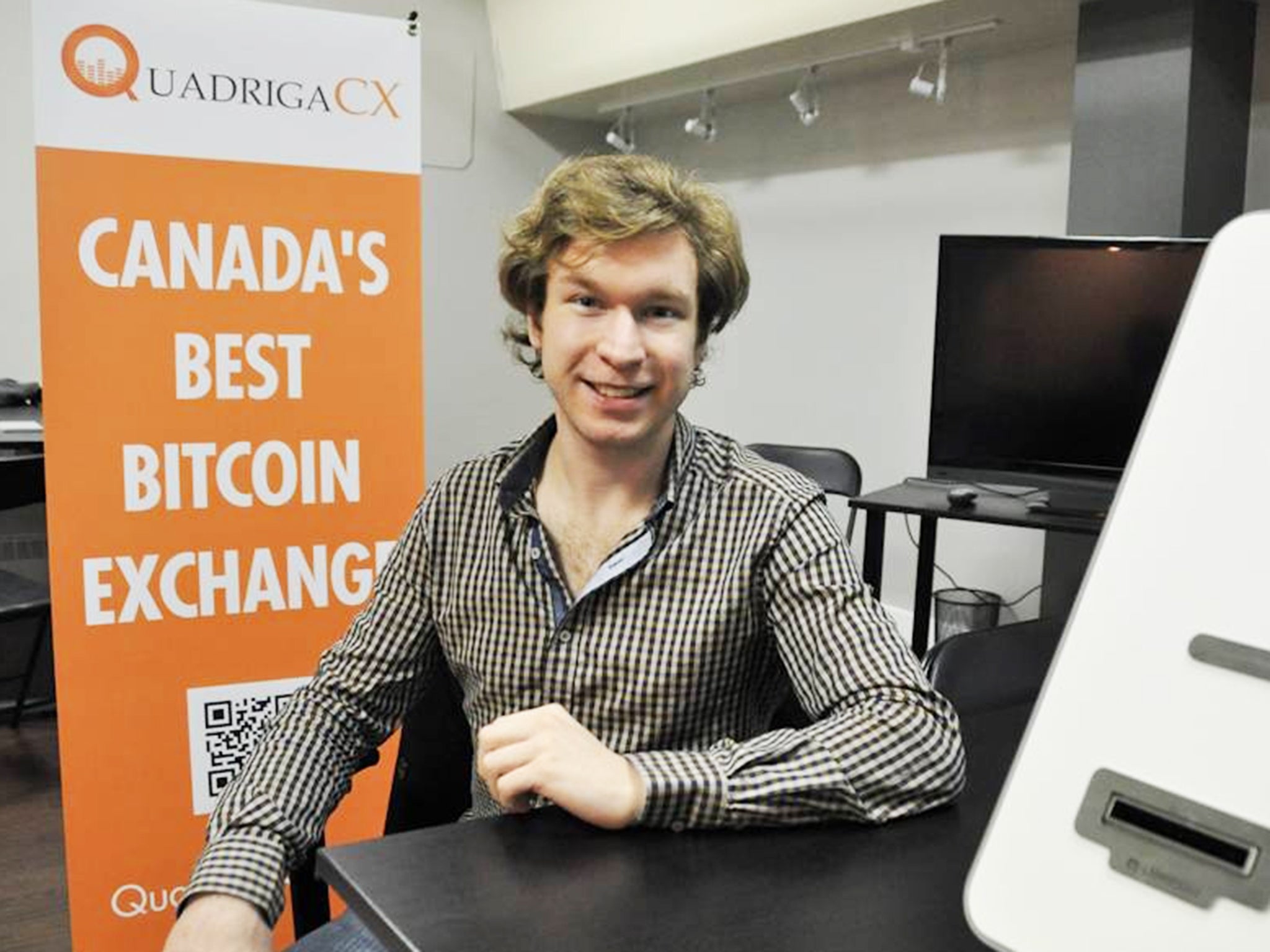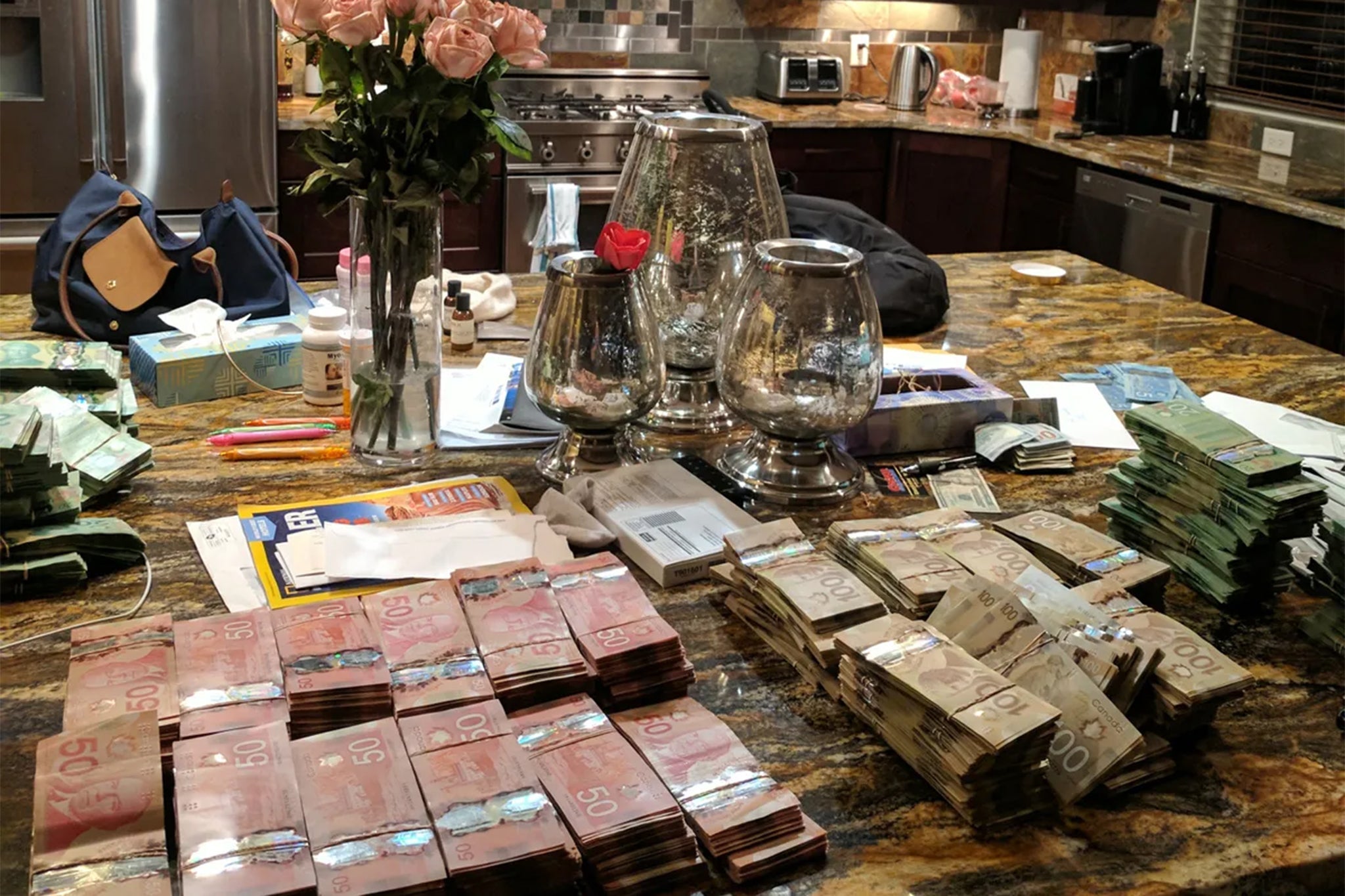
The first thing Jennifer Robertson says when she answers the phone is, with a laugh, “I’m not on an island with Gerry.”
That would be with Gerald Cotten, her former husband, a controversial Canadian cryptocurrency businessman who suddenly died in 2018, leaving behind a trail of missing millions, lawsuits, investigations, and wild conspiracy theories related to his company QuadrigaCX.
Most people do not have to repeatedly assure the world that they’re not hiding out in the tropics with their deceased spouse, but as Ms Robertson details in her new book, Bitcoin Widow: Love, Betrayal and the Missing Millions, her last few years have been unlike anything most people experience.
By the time Quadriga folded, it owed its approximately 76,000 investors $215m, and Ms Robertson realised, along with thousands of people, she had been deceived on an extraordinary scale.
“I love the person that I knew,” she told The Independent from her home in Hallifax, Canada. “The person that has been reported on, I don’t love that person, I hate that person. That person, what he did to everybody else, what he did to me, I don’t understand it.”

Founded in 2014, Quadriga was for a time Canada’s largest cryptocurrency exchange platform, and grew rapidly as digital assets became more mainstream, handling more than $1bn in its third year.
Cotten became an outspoken public spokesperson for crypto, appearing at conferences and events and telling one podcast, “It’s pretty much money by people for people,” all while constantly talking with Ms Robertson about how people had the wrong idea about bitcoin as solely the province of hackers and hucksters.
“I truly think it was Gerry’s cover,” she said. “He obviously made it look like he was on the up and up to hide what he was doing and what he had done in the past ... It is just appalling to me. I grew up in a middle class, good family. It’s just hard for me to fathom that Gerry could even live a life of crime for so long.”
But all that would be revealed later. During the good years, the couple seemed to have it all — and then some. They bought a $600,000 yacht, a high-end Lexus, 17 homes and a private plane, all while jet-setting between Paris, Hawai’i and Morocco.
However, things took a turn as the business matured. A computer issue wiped $14m of Ethereum cryptocurrency off the exchange. A Canadian bank froze another $21m of funds.

In 2018, as the price of bitcoin began to collapse, the cracks began to show. Investors, sold on the premise that they would be able to trade assets quickly like they could on the stock market, found that it was taking weeks or months to pull their money out of Quadriga.
Then Gerald Cotten suddenly died, in December of 2018, from complications with Crohn’s disease. The couple were on their honeymoon in India, where Jennifer had dreams of opening an orphanage. The death wasn’t announced until a month and a half later, in January 2019.
Before Gerry died, he had altered his will and left many of his assets to his wife, but he hadn’t written down the passwords or set up an emergency succession plan for the so-called “cold wallet” digital storage devices where Quadriga said it kept its customers’ money.
This set off a wave of speculation about what Cotten had been planning, some founded, some baseless.
“I found it extremely concerning that in the few years leading up to his passing, he got his pilots’ license, he learned how to operate the biggest yacht you can have without a crew,” said Jen Zegel, a trusts and estates lawyer from Kleinbard LLC, who wrote a book using Quadriga as a case study of mismanagement. “To me those are real big red flags that he was contemplating some potential exit where he could hide in his own place and hide in the Caribbean on a boat.”

Others speculated the businessman had faked his own death, and investors began calling for his body to be exhumed.
As investors and investigators probed what happened, they would discover the truth was wilder than what they had imagined, uncovering perhaps the biggest crypto scandal in history.
As detailed in recent documentaries like the CBC’s Dead Man’s Switch: a crypto mystery (2021) and Netflix’s Trust No One: The Hunt for the Crypto King (2022), Cotten had been defrauding investors and lying to his family for years, in what the Ontario Securities Commission would eventually declare a Ponzi scheme.
Tong Zou, 33, lost his life savings on Quadriga, including a $200,000 gift from his parents, as he describes in the Netflix film.
"I want to share my story so it doesn’t happen to other people," he told Sky News in March.
In addition to siphoning off nearly $20m in funds for personal use, Cotten also lost more than $90m of Quadriga customers’ cash making fraudulent trades on and off the exchange, sometimes using accounts with Star Wars-inspired spoof screen names like “Aretwo Deetwo” and “Seethree Peaohh.”

The company didn’t even have an official bank account, processing payments through third parties or Cotten’s own laptop. The Cottens’ home was filled with piles and piles of loose cash, which Gerry claimed was a consequence of supposedly discriminatory banks who didn’t yet understand crypto and refused to work with them. It would also be revealed that the businessman had started scamming people online at age 15, and had ties to Midas Gold, a business linked to a Costa Rican money laundering operation.
Perhaps the central argument for the ascendancy of cryptocurrency is its supposed transparency: every transaction made with bitcoin is logged on a public ledger called the blockchain, though the identity of the trader isn’t always clear. Quadriga tested these principles to the fullest.
Regulators were able to recover about $27m of customer funds, and Robertson turned over almost all of her possessions in a bankruptcy settlement, including $12m in assets and the couple’s extravagant possessions, but nearly $200m remains missing or inaccessible.
Robertson isn’t under investigation or facing any criminal charges. And some burned former investors like Mr Zou don’t believe the conspiracies, arguing that it wouldn’t make sense for Cotten to fake his own death after the price of bitcoin tanked, rather than during, when he could have made off much richer.
"The timing didn’t make sense to me,” he told Sky.
For Robertson, the experience of thinking she knew the man she loved, only to learn about a vast, all-consuming lie, was one that broke her.

At first, like many wives would, she defended her husband.
“I never for a second thought that Gerry wasn’t doing what he told me,” she said. “In the beginning, I obviously never believed that Gerry could ever do something like this and very adamantly defended him.”
That only made things worse. She began receiving death threats, as people thought she was on in the scheme, which she adamantly denies.
She was just as flabbergasted as everyone else, opening computers and homes for searches by police and still learning little about what ultimately became of all that money.
She began recalling whole conversations with Gerry that seemed entirely fabricated in retrospect. In one exchange, Cotten had been going on and on about the greedy Canadian government taking millions via taxes. Jennifer eventually learned that Cotten hadn’t been paying taxes at all.
“We had so many memories together. Every single memory we had together,” she said, “laughs we had. The things that we shared … I’ll never know. Was there any real Gerry in there? Were some of the best moments of my life absolutely fake?”
She was grieving the man she loved, while learning that same man had deceived her, and defending him against ruthless attacks. At her lowest, she tried to take her own life.
“That’s how deep the deception went. That’s what hurt so badly,” she said.
Her previous marriage had ended after her husband had an affair, and her marriage to Cotten ended in a lie as well. She now has a hard time trusting people.
There was also the very real material impact of what happened. Under the terms of the dissolution of the company, she gave up all her assets beside $90,000 in cash, $20,000 in retirement, her car, and her wedding band. Gerry had mixed the rest of their estate in with the funds of the company and its customers.
“In the end, I ended up losing everything. It’s not like I went abroad and ran away from this mess. I faced it head on and I feel like I really took a lot of the consequences for someone else’s mess,” she said.
She said she’s done all she can to help authorities find the lost money, and she’s hoping the book can offer her version of something Gerald Cotten never could give: the truth.
“I really did feel, even though I couldn’t bring back their money and everything they lost,” she said. “I could bring them some answers.”
The FBI and the Royal Canadian Mounted Police are still ostensibly investigating the lost crypto, though there hasn’t been a break in the case in years.
Now, most of those still thinking about the Quadriga scandal are left only with their questions, regrets, and warnings.
Ms Zegel, the estate lawyer, said the case should be a cautionary tale for those getting invovled with new financial products like crypto that they don’t fully understand.
“Not only did the government not know how to police and regulation this emerging asset class, certainly the average individual didn’t comprehend the true implications of owning those type of investments and the risks,” she said.
One of Gerry’s claims he liked to tout to burnish his reputation was that he worked with the RCMP and was registered with Canada’s anti-money laundering service, so of course he couldn’t be a crook. But his lies were convincing enough he operated without detection for years under the eyes of regulators, creditors, and even his own wife. Every scammer needs enablers, or at least believers, and Gerald Cotten had plenty.
Jennifer Robertson has tried to move on with her life and sink back into anonymity. She still thinks about her husband when she hears a song they both liked, or looks at old photos. But she’s got other priorities now.
This year, she gave birth to a baby daughter, and is pursuing a career in elementary education. After living the life of an international elite, she went back to working at an old bar where she was once an employee to put herself through school. People occasionally make off-colour jokes about Gerry and Quadriga, but she’s also gotten a lot of positive messages of support, too.
She hopes her story, in addition to being yet another tale of millennial capitalism gone wrong, is one of hope.
“I fell into a hole that was dug by someone and I was kind left there to get myself out of it. I wanted other people to know that sometimes some terrible things happen,” she said. “You can climb your way out.”
She wrapped up the phone call. In the background, there weren’t the sounds of waves lapping on a remote island, or Gerry Cotten yet living, but a baby fussing and needing its mom.







